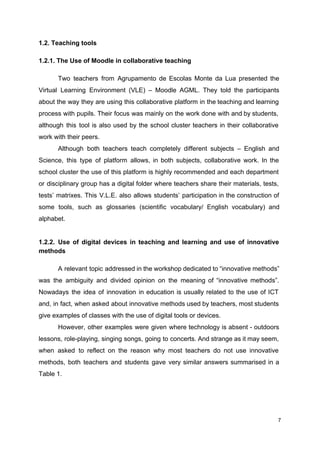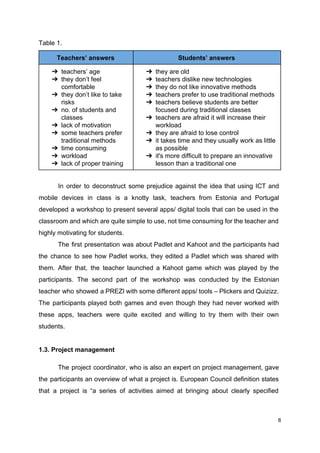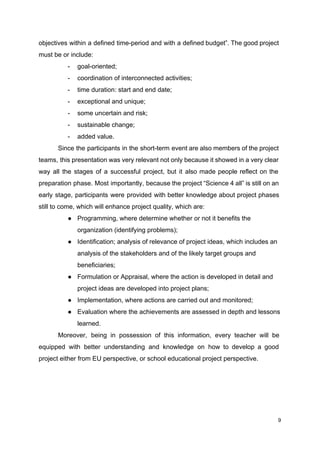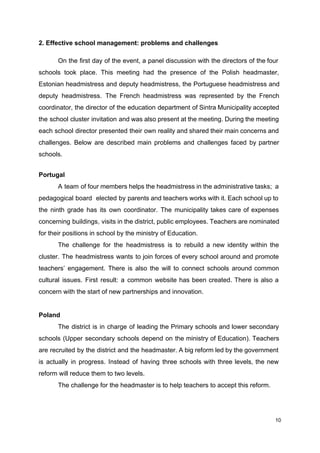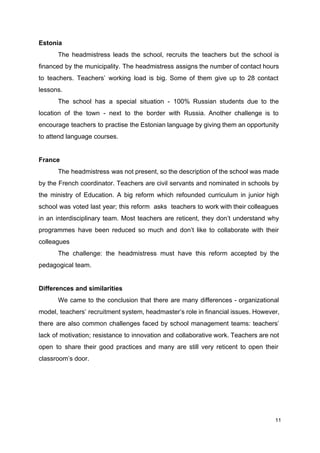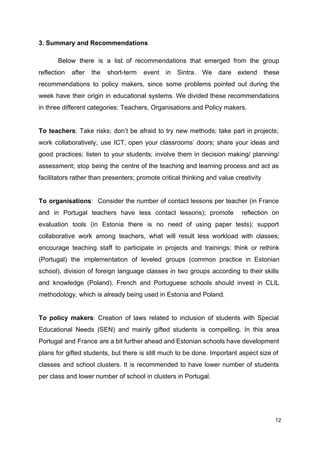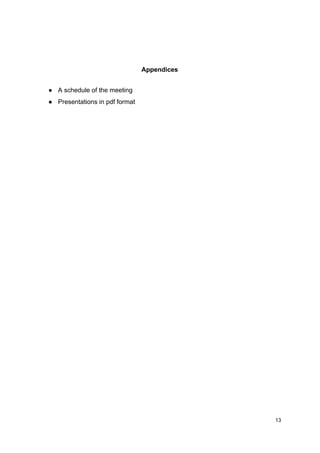This document summarizes key findings and recommendations from a partnership meeting in Portugal between schools from France, Estonia, Poland, and Portugal. Good practices in teaching methods like cross-curricular teaching and helping underachieving students were shared. Challenges in school management discussed included implementing reforms, encouraging collaboration, and promoting innovation within budget and teacher constraints. The meeting achieved its goals of exchanging ideas and familiarizing partners with each other's education systems to improve science teaching for all students.
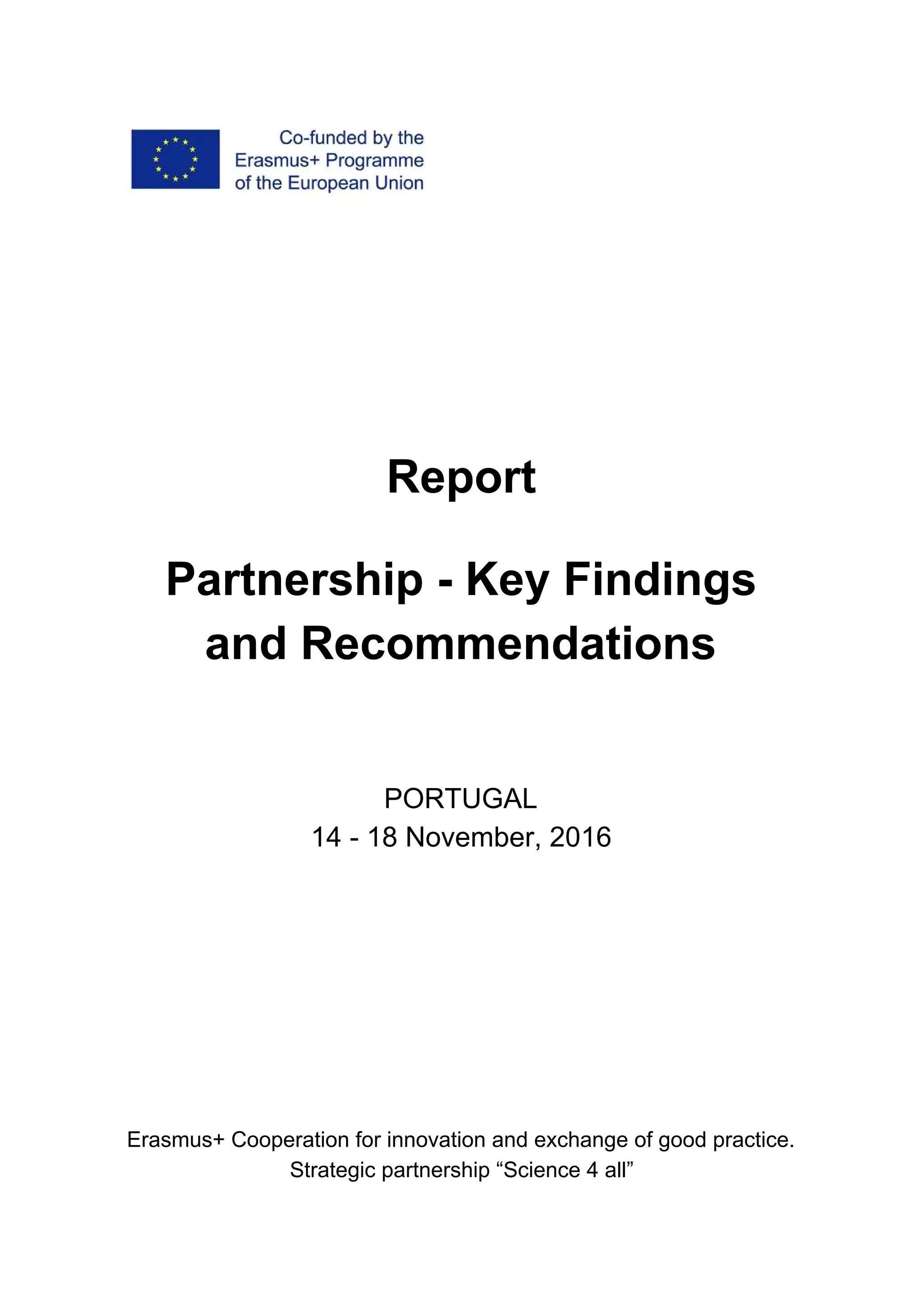
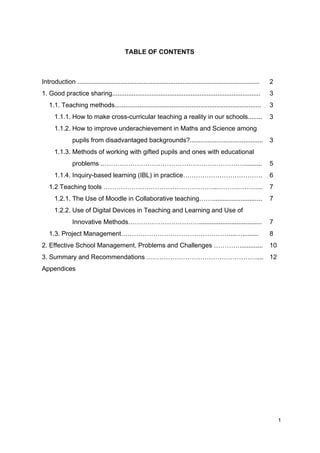
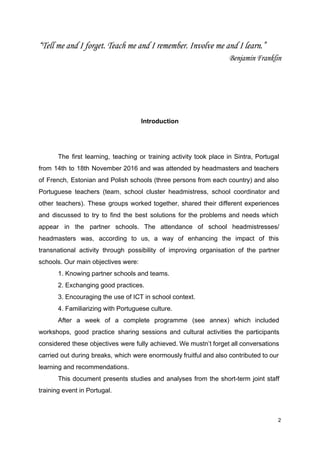
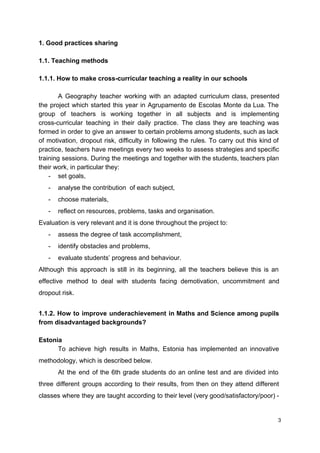
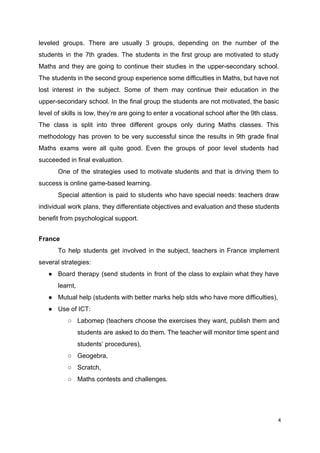
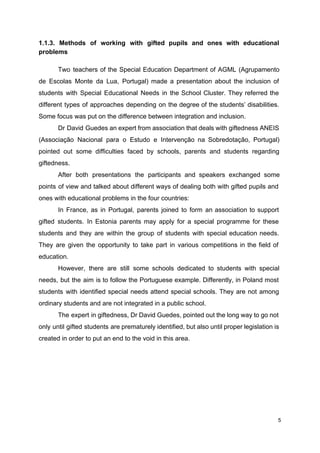
![1.1.4. Inquiry-based learning (IBL) in practice
Inquiry based learning stands for the learning process in which not only facts
are explained but where questions, problems and scenarios are presented to the
pupils. This learning approach can include a wide range of activities, such as case
studies, field-work, investigations or research projects, among others.1
Prior to the workshop where a Science teacher introduced this methodology,
the participant teachers observed a Science lesson which was taught outdoors and
in which the teacher used this approach. The teachers could realize the importance
of this type of approach, since it allows the development of the 21st century skills:
● critical thinking and problem solving,
● effective communication,
● collaborative work,
● creativity and innovation.
One of the most important aspects of its use is that the focus of the teaching
and learning process is on the student. The student is granted the opportunity of
being actively involved in the process of learning, whereas the teacher assumes a
role of orientation and challenge.
Inquiry-based learning uses a central question to frame a module. Students
answer this central question for themselves, doing hypothesis, discovering and
learning through a series of guided discussions, experiments, and hands-on
activities over several class periods. Teachers find that students are more engaged
in what they are learning, and have a wider context for understanding the material
rather than just hearing a lecture or memorizing facts.
Inquiry learning is an active and constructivist process thus assessment
feedback should be integrated into this. Assessment of IBL skills and competencies
requires teachers to be able to use a variety of tools to determine where students are
in their learning. From these data, they can make judgements that can help the
student to decide on the next step in learning, and so guide them towards
improvement.
1
http://www.scientix.eu/web/scientix-cop-02/ibse [20.12.2016]
6](https://image.slidesharecdn.com/report-partnership-170326112015/85/Report-partnership-key-findingsandrecommendations-7-320.jpg)
